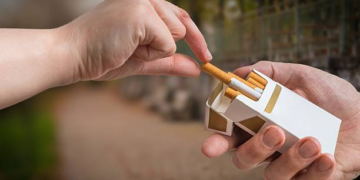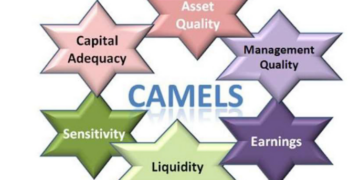Sanitation is a vital part of daily human life. Our body needs to flush out waste and toxins as a matter of routine, physiological process. Urine and feces are the end products of our metabolism. It is, however, also very important to properly dispose-off this bodily waste, for both aesthetic and health reasons. Properly disposed off feces and urine ensure a clean, odorless environment, as well as prevent diseases due to microbes. Improperly disposed off waste, on the other hand, will cause a poisonous odor and be a breeding ground for diseases. Therefore, it is important to have proper sanitation facilities and toilet for everyone.
Biggest fact of our country and world is more people have access to a mo bile phone than a toilet. The World Bank estimates that nearly 75% of the world has access to a mobile phone, while only 64% has access to a toilet. Millions of people have to travel long distances away from their homes just to find a place to relieve themselves. Toilets save lives; it’s as simple as that because lack of sanitation spreads disease, like diarrhea and intestinal parasites. A child dies from diarrhea every 86 seconds. A single gram of feces can contain 10 million viruses and 1 million bacteria. The best place for human waste is down the drain and therefore, we should love our toilet, we should care for it! When women and girls have access to sanitation, they are less vulnerable to physical and sexual assault. When women and girls have to travel to find some privacy, they are vulnerable to sexual assault on their journey. That’s because they often relieve themselves late at night or before dawn to avoid being seen, awful men take advantage of this situation.
bile phone than a toilet. The World Bank estimates that nearly 75% of the world has access to a mobile phone, while only 64% has access to a toilet. Millions of people have to travel long distances away from their homes just to find a place to relieve themselves. Toilets save lives; it’s as simple as that because lack of sanitation spreads disease, like diarrhea and intestinal parasites. A child dies from diarrhea every 86 seconds. A single gram of feces can contain 10 million viruses and 1 million bacteria. The best place for human waste is down the drain and therefore, we should love our toilet, we should care for it! When women and girls have access to sanitation, they are less vulnerable to physical and sexual assault. When women and girls have to travel to find some privacy, they are vulnerable to sexual assault on their journey. That’s because they often relieve themselves late at night or before dawn to avoid being seen, awful men take advantage of this situation.
More than 50 per cent of Indians do not have access to safe and private toilets, some of the latest studies have mentioned. A report titled ‘It’s No Joke – State of the World’s Toilets’ by WaterAid (WaterAid is an international non-profit organization that was set up in 1981 as a response to the UN International Drinking Water & sanitation decade (1981–1990) states that “If all 774 million people in India waiting for household toilets were made to stand in a line, the queue would stretch from Earth to the moon and beyond.” India is second largest country in world, where people are forced to defecate in the open. Stop for a minute, imagine, if you don’t get to visit the toilet for few hours……how would you feel? How many times do you use the toilet in a given day? Three times; Five times; four times; six times?? One of the first things we do in the morning and the last thing we do before going to bed, using the toile. Urinating and defecating is most essential part of living life. If toilets are removed from our daily life, what are we left with?
Toilet cleanliness is very important for all the human beings. If they are not clean, it is the place from where all the germs and bacteria start their attacks on the human body. That is the reason why the toilets need to be sanitized daily. If toilets at home and workplace or wherever you visit are unclean, it affects the health immediately. Unclean toilets can cause various illnesses. Having a clean toilet is a privilege for many of us.
A news item in Wall Street Journal in 2014 says that India has a mental block against toilets: every second person relieves themselves outdoors; this is Indian’s century old practice that contributes to child malnutrition, economic loss and violence against women. Sanitation experts say that only building more toilets will not solve the problem, first, people need to learn to love using the latrines.
Many Indians regard open defecation as part of a natural, healthy, honest life; a recent study conducted in Bihar, Haryana, Madhya Pradesh, Rajasthan and Uttar Pradesh found. This mentality is more observed among rural North Indians. Those five northern Indian states account for 45% of the country’s households without a toilet, according to data from the 2011 census. But even in homes where toilets were installed, many people still prefer to go outside.
United Nations (UN) observes World Toilet Day on November 19 each year. According to a study of UN, 2.5 billion people in the world do not have access to proper sanitation.
According to a recent survey, more than 140,000 children younger than five years die each year in India due to diarrhea. Nearly 40 per cent of India’s children are stunted; this will affect both their life chances and the future prosperity of India. India also has high rates of maternal and newborn mortality linked to sepsis. It’s a big issue even for women. Schools and colleges toilets are dirty and unusable. Most girls avoid using the filthy toilets holding back their urge of urinating for hours. And, girls in rural areas and urban slums lack access to clean toilets and sanitation and this is a big cause of dropping out of school, or not going to school at all. It’s the difference between education and independence and being locked into poverty and conquest.
‘Toilet ek premkatha’ is a 2017 Indian Hindi film directed by Shree Narayan Singh, co-produced by Akshay Kumar (actor of the movie) and Neeraj Pandey. The film stars Akshay Kumar and Bhumi Pednekar in the lead roles. The film was released on August 11, 2017, is a satirical comedy in support of governmental campaigns to improve the sanitation conditions, with an emphasis on the eradication of open defecation, especially in rural areas. The movie doesn’t come off as preachy, but yet highlights the need for a toilet, especially for women in every household. This movie has now received recognition from the UN Environment Cell.
Bollywood movies have often talked about subjects like sex, HIV, sexual violence and other sensitive topics. Now, filmmakers are addressing issues like sanitation, hygiene and menstrual hygiene. The new movement is seen as a forefront of a new genre of Indian movies that attempts to tackle issues more subtly and sensibly than the current crop of blockbusters. Movies like ‘Toilet ek premkatha’, ‘half girlfriend’, ‘Phullu’ and ‘Padman’ are very perceptively made; they handle the social issues of defecation, menstrual hygiene with sensitivity.

















































